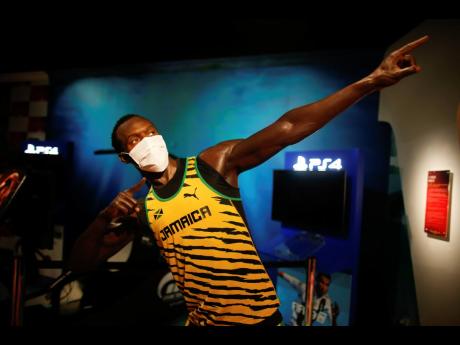Border patrol - Diaspora urges testing, monitoring of visitors to keep COVID-19 numbers low
The diaspora is harbouring mixed views on whether Jamaica should again close its borders to incoming passenger traffic to prevent a spike in COVID-19 cases. There is consensus, however, on the need for testing and vigilance in ensuring strict adherence to established protocols to prevent the number of local cases to spiral out of control.
Upon the full resumption of travel to Jamaica on June 15, the Government instituted mandatory testing at the island’s airports and imposed mandatory quarantine measures for visitors and citizens returning to the island. However, the Government switched course due to the sheer number of persons coming into the island, which placed a huge strain on resources and caused delays in producing test results, with some visitors reportedly leaving the country before their positive results were returned.
As of July 15, it became mandatory for non-residents, except business travellers, visiting Jamaica aged 12 years and older who are residents of locations designated as high risk obtain a COVID-19 test within 10 days prior to their intended date of travel to Jamaica. Business travellers would have samples taken at points of entry and remain in quarantine at their hotels or homes until the result is received. Residents – nationals or non-nationals ordinarily resident in Jamaica – are required to be quarantined at home for 14 days. Testing is done if persons are symptomatic or become symptomatic during this time.
New York resident Christopher Patterson, who is currently vacationing on the north coast, is pleased with the measures being employed by the State. The problem, he contends, lies with persons who choose not to follow the various directives.
“If the rules are followed, then the system can work. Some visitors have broken the curfew (quarantine order) and have been roaming freely as they flout the rules necessary for containment of the virus,” the Jamaica-born Patterson told The Sunday Gleaner. “If the people who visit be mindful of the fact that their roaming can cause the country to close back down, then the borders can remain open.”
PRETESTED
He disclosed that he had undergone COVID-19 testing and received his results while in New York because of a requirement for persons from states with high infection rates to be cleared for travel. He was, therefore, not tested upon entry to the country.
Patterson noted that transport operators and workers in other tourism-dependent sectors have been complaining of an economic drought.
“One hotel worker told me that she has worked only four times – on the weekends – since the outbreak. She is now the main provider for her family as all the other adults earn from the industry in one way or another,” he related. “Then there is a fisherman who supplies me with fish, lobster and crab. He is also feeling the pinch as not enough visitors are coming to keep his business afloat.”
Because of the economic squeeze a lockdown could bring, Patterson believes the borders should be kept open but there needs to be greater vigilance to ensure the rules are followed.
The concern is understandable. A report from the United Nations Conference on Trade and Development ranks Jamaica as the country expected to suffer most from the global tourism fallout. The industry fuels more than 20 per cent of the economy. And Tourism Minister Edmund Bartlett has revealed that the island earned an estimated US$80 million from approximately 40,000 tourists since the June 15 reopening of the borders.
Most of the island’s tourists come from the United States, which occupies the unenviable position atop the global cases chart with more than 4.5 million cases and upwards of 153,000 deaths. Since the borders reopening, several COVID-19 cases have been detected in visitors, mainly from the US.
Up to yesterday morning, the island had recorded 878 cases since its first on March 10, of which 335 were import-related. With 726 recoveries and 10 deaths, the number of active cases remains relatively low at 95.
Donovan Burnett thinks containment of the deadly risk posed by the virus must outweigh any economic pursuit.
“I think we should close the borders. We cannot think about money. Right now, the threat to Jamaica is great. Many countries around the world have restricted travel from the US. We do not want to spread this to anyone at home, so it is not wise,” said Burnett, who resides in New Jersey and has lived in the States for more than three decades.
But Jamaica-born resident of Brampton in Canada, Craig Wellington, believes all visitors to the island should be mandated to undergo COVID-19 testing in the week leading up to their planned flights if the borders are to remain open.
“Jamaica also needs to charge visitors for testing on arrival in order to cover the cost of ramping up testing and laboratory capacity to adequate levels,” he further suggested, adding that this could create more jobs in the healthcare sector.

